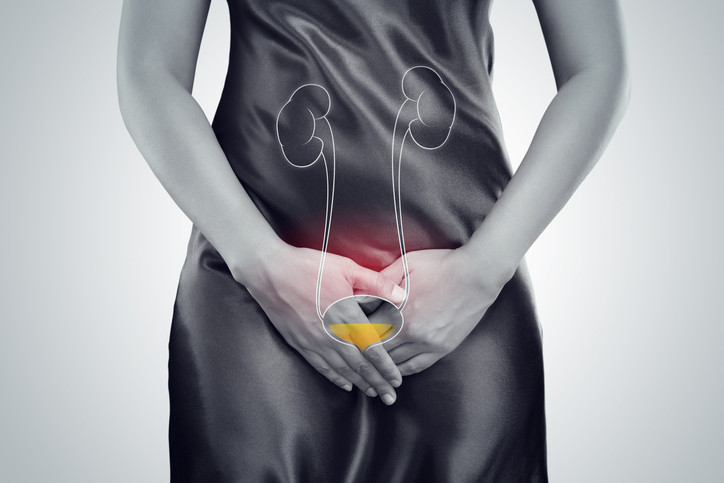
Driving with arthritis pain: Stay comfortable — and safe — behind the wheel

Daily cup of coffee may prevent afib recurrence

Gene-editing therapy lowers harmful blood fats in early study

What is EMDR therapy, and who can it help?

GLP-1 drugs versus bariatric surgery for treating obesity

Two dumbbells, three exercises, and 10 minutes

Easing the emotional burden of IBS

Modify your push-ups to meet your fitness level

What is long QT syndrome?

Stroke survivors may benefit from very low LDL levels
Bladder & Bowel Archive
Articles
Can we prevent urinary tract infections?
Scientists are testing potential vaccines that aim to prevent urinary tract infections (UTIs). Until then, strategies that may help ward off UTIs include drinking lots of water each day, emptying the bladder after sexual intercourse, using vaginal estrogen creams (for women), wiping front to back after gong to the bathroom (for women), taking a daily long-term, low-dose antibiotic, taking a single dose of an antibiotic after sex (if recurrent UTIs often follow sexual intercourse), or taking cranberry supplements.
Laxatives: What to know about choosing the right one
Eating a fiber-rich diet helps to prevent constipation. There are a variety of laxatives for occasional irregularity.
IBS in the crosshairs
Irritable bowel syndrome (IBS) affects up to 45 million Americans, two-thirds of whom are women. IBS is categorized into three types depending on which symptoms dominate: diarrhea, constipation, or a mix of both. Possible contributors include changes in gut bacteria, faulty nerve signals between brain and intestine, pelvic floor problems, and genetics. Newer treatment approaches target pathways involved in symptoms. Doctors are also repurposing older drugs for IBS, including certain antidepressants and the antibiotic rifaximin (Xifaxan).
Why you keep waking up to go to the bathroom
Making one or more trips to the bathroom every night is the defining characteristic of a medical condition called nocturia. It can be caused by aging, lifestyle habits, or underlying conditions such as an overactive bladder or (in men) an enlarged prostate. Treating nocturia starts with lifestyle changes such as avoiding fluids several hours before bedtime, eliminating caffeinated drinks 10 hours before bedtime, and limiting evening alcohol intake. Medications, pelvic floor exercises, injections of botulinum toxin (Botox), or nerve stimulation treatments may also help.
Did I cause my partner's bladder infection?
While a man cannot directly give his female partner a bladder infection, he can increase her risk with vigorous or frequent sexual intercourse.
Bladder problems that warrant a doctor's visit
Bladder problems in women can increase due to childbirth, menopause, and aging. Additional contributors to bladder symptoms include weight gain, pelvic organ prolapse, and the types of beverages people drink, as well as how much and how often. Women should see a doctor about increasing leakage, urgency, frequency, or nighttime urination; cloudy or strong-smelling urine; pain or burning while urinating; pain during sex; or lower abdominal pain.
Leaking a little urine: It's not just a female problem
Men often have a hard time coping with incontinence (urine leakage). It can leave them feeling depressed or socially isolated. Types of leakage problems in men include urge, stress, and overflow incontinence. Treatment depends on the type of incontinence a man is experiencing. For example, overflow incontinence may get better with a procedure to reduce the size of the prostate; medications, injections in the bladder muscle, and pelvic floor exercises can help with urge incontinence.
Did my partner get her bladder infection from me?
Men do not have to worry about getting bladder infections from their female partners. Women can get urinary tract infections after sex, but this is a result of irritation at the opening of the urethra, which makes it easier for bacteria to enter.
Pregnancy's lasting toll
Pregnancy and childbirth effects on the body can linger or develop years or decades after the birth. Muscles, ligaments, and nerves in the pelvis can be damaged, leading to urine or stool leakage or sagging pelvic organs. Treatment approaches include a pessary, various surgical procedures, or pelvic floor physical therapy. Women can protect their pelvic floor from weakening further by maintaining a healthy weight, preventing constipation, and managing conditions that contribute to chronic cough.

Driving with arthritis pain: Stay comfortable — and safe — behind the wheel

Daily cup of coffee may prevent afib recurrence

Gene-editing therapy lowers harmful blood fats in early study

What is EMDR therapy, and who can it help?

GLP-1 drugs versus bariatric surgery for treating obesity

Two dumbbells, three exercises, and 10 minutes

Easing the emotional burden of IBS

Modify your push-ups to meet your fitness level

What is long QT syndrome?

Stroke survivors may benefit from very low LDL levels
Free Healthbeat Signup
Get the latest in health news delivered to your inbox!
Sign Up











